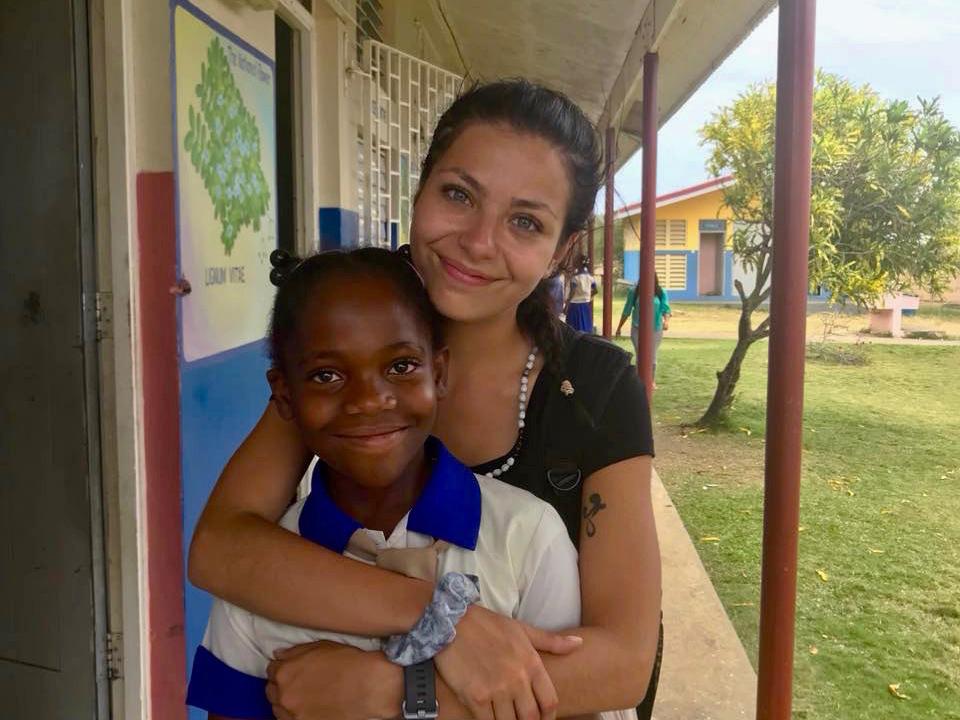Senior communication major Isabella Falcigno studied abroad this summer with the Jamaica Field Service Project, volunteering in local schools, teaching reading and making new friends.
Isabelle Bichindaritz of the computer science faculty has signed what are known as the Asilomar AI Principles guiding research in artificial intelligence, according to the Future of Life Institute. Wired magazine recently reported that Bichindaritz, who is director of the college’s biomedical and health informatics graduate program, is among 1,273 AI/robotics researchers and 2,541 others -- including such globally famous people as Elon Musk and the late Stephen Hawking -- to sign the statement of ethical principles, drafted in 2017. The document begins, “Artificial intelligence has already provided beneficial tools that are used every day by people around the world. Its continued development, guided by the following principles, will offer amazing opportunities to help and empower people in the decades and centuries ahead.”
Senior communication major Isabella Falcigno studied abroad this summer with the Jamaica Field Service Project. Accepted into the competitive program, she completed service learning work in the local schools, while living and studying in rural Jamaica. For ten days, Falcigno immersed herself in the traditions, music and culture of Jamaica alongside other SUNY students. Falcigno volunteered in the local primary schools, teaching reading and donating much-needed school supplies. Through this SUNY-accredited service learning program, students volunteer in their area of specialization in the island's schools, care centers, orphanages and hospitals. In addition to their volunteer work, students also explore the diverse culture of this vibrant Caribbean country, all under the supervision of the JAFSP’s experienced professors and staff.
A new fifth edition of a book co-written by Provost Scott Furlong, “Rulemaking: How Government Agencies Write Law and Make Policy,” was recently published by CQ Press. In the 2010 fourth edition, Furlong first became co-author with the book’s original author and continuing co-author, provost of American University and a professor of public administration in American University's School of Public Affairs. The highly regarded text focuses on the dynamics of modern American politics by showing how rulemaking remains an elemental part of the United States government system.
Chief Technology Officer Sean Moriarty authored "Building a culture of accessibility in higher education" in the EDUCAUSE Review blog. The piece explained how the college has come to prioritize the accessibility of digital resources by all audiences as a campuswide requirement, and detailed steps for how other institutions can build a proactive, engaged culture.
Jaclyn Schildkraut of the criminal justice faculty compiled and provided expert input into the Report of the Onondaga School Safety Task Force, which was a joint initiative of partners including the Onondaga County District Attorney, County Executive and Sheriff’s offices, as well as the City of Syracuse Mayor’s Office. The Aug. 13 report drew lessons and observations from the Feb. 14 mass shooting at Marjory Stoneman Douglas High School in Parkland, Florida, and from evidence and best practices to include recommendations about training, threat assessment and school grounds safety, as well as proposed steps forward for law enforcement, schools and policymakers.
SUNY Oswego computer science faculty member Caglar Yildirim, and students Michael Carroll, Daniel Hufnal, Theodore Johnson and Sylvia Pericles presented “Video Game User Experience: To VR, or Not to VR” at the 2018 IEEE Games, Entertainment and Media Conference, Aug. 15 to 17 at National University of Ireland Galway. Their study investigated whether VR gaming might affect the video gaming user experience by comparing three different gaming platforms -- desktop computer, Oculus Rift and HTC Vive, in terms of gaming user experience satisfaction.




